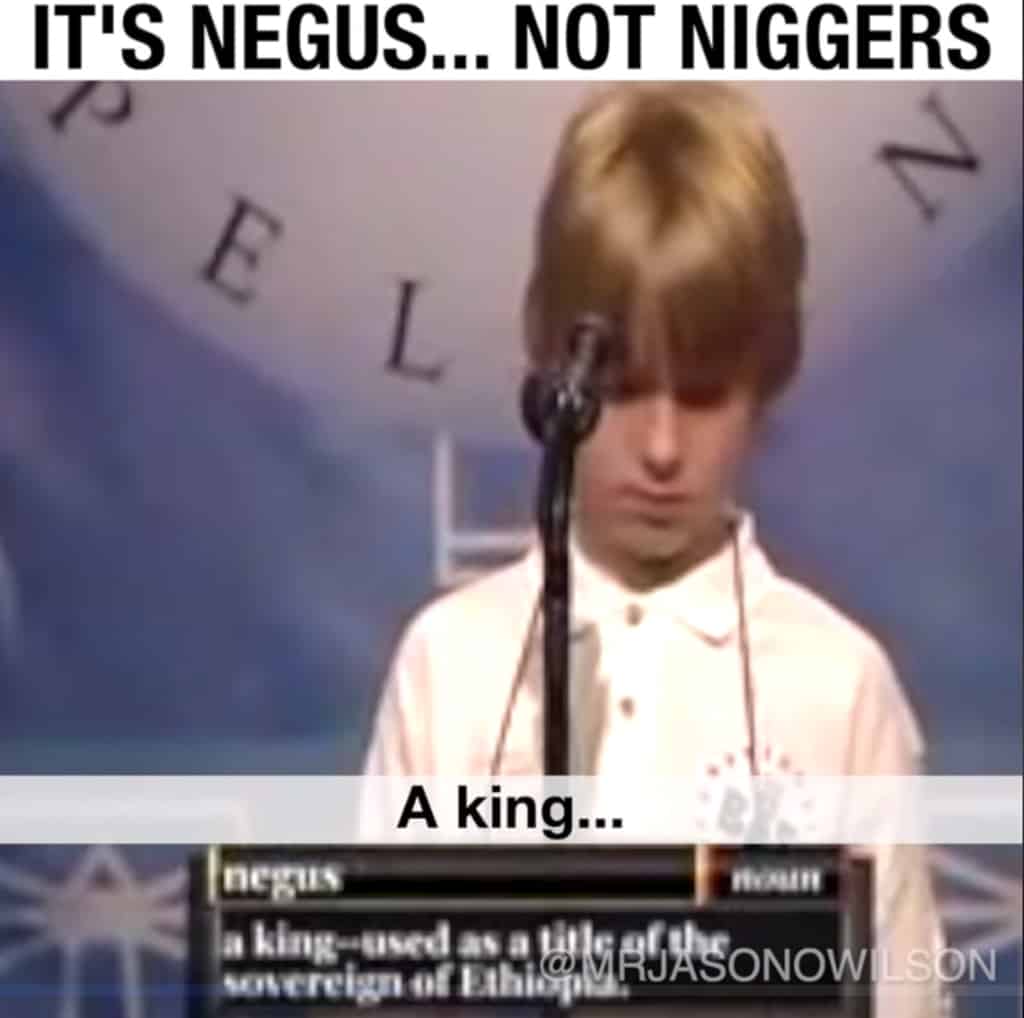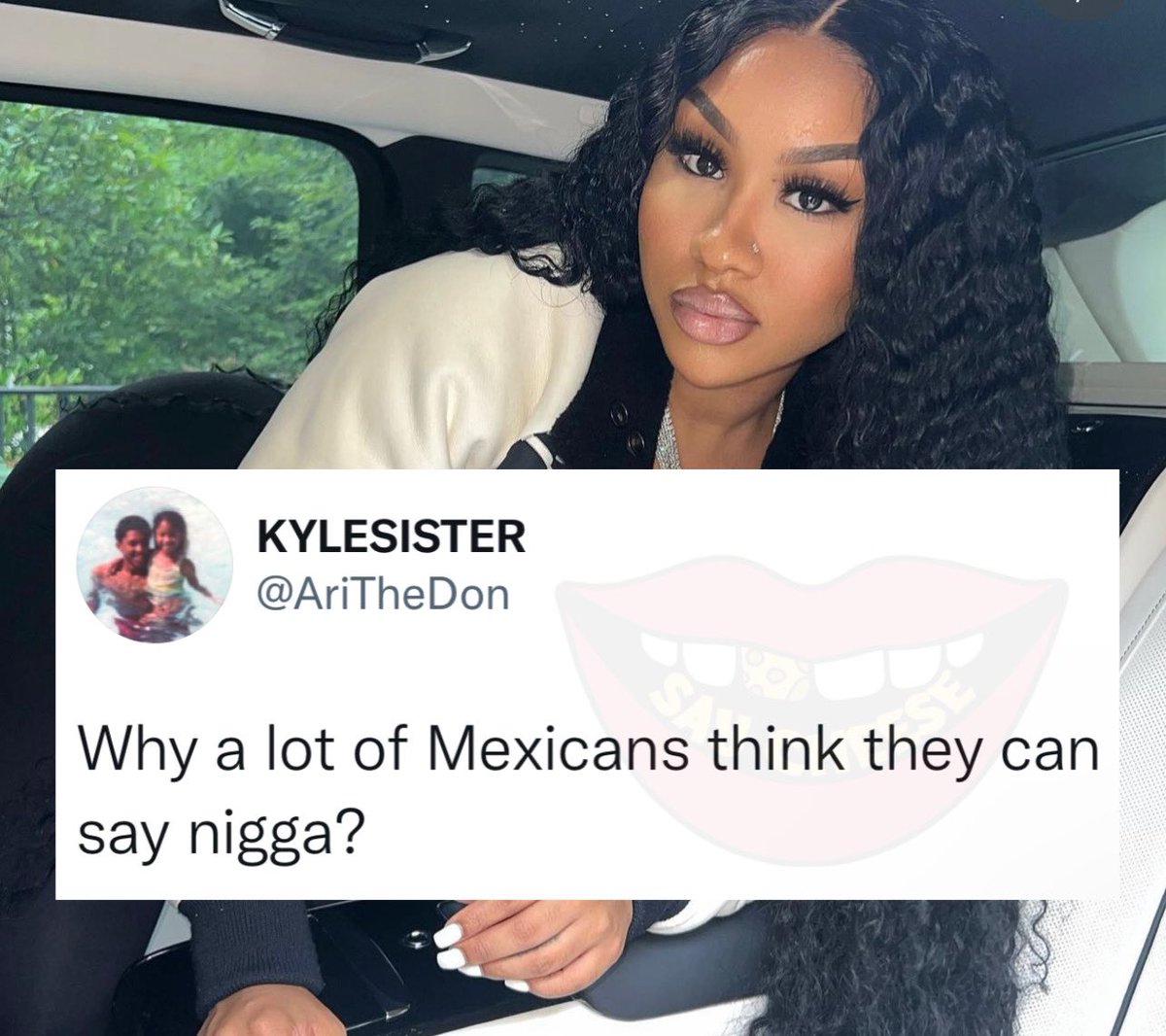Understanding The 'Nigger Meme' Phenomenon Online
There's a particular kind of online content that, you know, sparks a lot of discussion and, quite frankly, can be rather unsettling. It often involves sharing material that some individuals find humorous or illustrative, yet it can be quite divisive. The way these things circulate across various digital platforms, particularly on social media and specialized forums, really shows how ideas, even challenging ones, can spread far and wide.
This type of content, often called a 'meme,' tends to capture moments or concepts that resonate with specific groups, sometimes for reasons that are not universally accepted. It’s almost, in a way, a reflection of certain perspectives, or even just a quick way to share an idea, however uncomfortable that idea might be for many. We see this play out in different online spaces, where people gather to share and react to these particular kinds of digital expressions.
The nature of these online items means they pop up in unexpected places, and they can sometimes refer to historical events or personal incidents, shaping how those stories are perceived by some. It's really about how digital communication allows for the rapid sharing of these items, creating a sort of shared understanding, or perhaps a shared misunderstanding, among those who encounter them.
Table of Contents
- Introduction to Online Content Phenomena
- Exploring Specific Online Communities and Their Content
- Historical Events and Their Online Interpretations
- Incidents and Online Portrayals
- Understanding Content Origin and Dissemination
- Media and Online Narratives
- The Ever-Present Nature of Online Discoveries
Introduction to Online Content Phenomena
The internet, as we know, is a vast collection of information, conversations, and shared experiences. It’s a place where communities form around common interests, and sometimes, those interests lean into areas that are quite specific, even controversial. One might, you know, find themselves encouraged to explore certain online platforms, like Reddit, where a wide array of groups exist. These groups, or subreddits as they are often called, each have their own particular flavor of content and their own rules for what can be shared. Some of these spaces are described by certain individuals as being particularly rich in material that they find amusing or illustrative of certain perceived shortcomings. It's almost as if these digital spots are seen as abundant sources for a very particular kind of content, one that some people seek out quite actively.
There are, of course, many, many different kinds of online content, and how they are created and shared can be quite fascinating to observe. What one person finds to be a source of entertainment, another might find to be deeply problematic. This variation in perspective is, basically, a constant feature of the online world. The way these items are categorized and discussed within these specific communities often reflects the viewpoints of those who participate in them. So, you know, it’s not just about the content itself, but also about the community that surrounds it and gives it meaning. This dynamic creates a very complex picture of what online sharing truly entails, and how different groups interact with various forms of digital expression.
Exploring Specific Online Communities and Their Content
Within the broad expanse of online communities, there are mentions of certain groups that focus on very particular types of content. One such group, for example, is referred to as 'r/ghettoglamourshots.' This particular community, it is said, was a place where specific kinds of images or portrayals were shared, often depicting situations or individuals in a way that some might consider unflattering or to highlight perceived failures. The source text suggests that this kind of material was quite sought after by those who frequented these online spaces. It’s almost as if these communities served as dedicated archives for a very specific aesthetic or narrative that resonated with their members, offering a consistent stream of what they considered to be interesting material. The very act of seeking out such content, you know, indicates a particular taste or curiosity among certain internet users.
However, the existence of such communities is not always permanent. It’s noted that some of these more, let's say, distinctive or 'cooler' subreddits, which were quite popular among their specific audiences for their unique content, have unfortunately been removed or made inaccessible. This suggests that platforms like Reddit do engage in some form of content moderation, even if the criteria for such actions might not always be clear to everyone. The removal of these communities, you know, means that the flow of this particular kind of material is disrupted, and those who sought it out must then look elsewhere or find new ways to engage with similar themes. It’s a bit of a constant dance between content creation, community formation, and the oversight provided by the platform itself, shaping what remains available for public viewing.
What Shapes This Kind of Online Content?
What really shapes this kind of online content, or what drives its creation and popularity, is a question that, you know, has many layers. It often seems to stem from a particular viewpoint or a desire to highlight certain aspects of society or human behavior that resonate with a specific audience. The content itself might be an image, a short video, or a phrase, but its impact comes from how it's received and re-shared within a community. For instance, the descriptions provided in the source text suggest a focus on perceived flaws or situations that are presented in a negative light, often with a clear, almost judgmental, tone. This sort of material, you know, tends to thrive in spaces where there's a shared understanding or a collective agreement on what is considered 'funny' or 'telling,' even if that understanding is not widely accepted outside of that particular group. It’s really about the shared perspective that gives this content its particular form and appeal, shaping its very nature.
The act of labeling something as a 'meme' also plays a role in its circulation. When something becomes a meme, it gains a certain kind of cultural currency within online circles, making it easier to share and understand quickly. So, you know, the format itself, the way it’s packaged, is a big part of why it spreads. The content often relies on visual cues or short, punchy phrases that are easily digestible and can be reinterpreted or adapted. This adaptability, arguably, makes it very appealing for rapid sharing across different digital platforms. It's almost like a shorthand for a complex idea, allowing people to communicate a lot with very little, which is, in some respects, a characteristic of how information travels on the internet today. The desire to create and share these items, in a way, reflects a broader trend in how people engage with and react to the world around them through digital means.
Historical Events and Their Online Interpretations
It's quite interesting, and sometimes rather troubling, to observe how historical events can be reinterpreted and used in online contexts. The source text brings up a specific instance, suggesting that the 1804 Haitian events have, apparently, become a kind of internet phenomenon, or a 'meme,' within certain online circles. This transformation of a significant historical moment into a digital item for sharing and discussion is, you know, a powerful example of how the past can be reshaped in the present online. The text even offers a bit of context, noting that there was a considerable amount of unrest and involvement of specific individuals during that historical period in Haiti. This kind of recontextualization, arguably, can alter public perception of these events, sometimes simplifying complex historical narratives into easily shareable, often provocative, pieces of online content.
The act of turning a historical event into a meme raises questions about how we remember and understand the past. When a serious historical occurrence is reduced to a meme, it can, you know, strip away its gravity and nuance, making it seem less significant or even trivial to some. This process can be particularly concerning when the events involve widespread suffering or significant societal shifts. It’s almost as if the digital format encourages a kind of shorthand that doesn't always do justice to the full scope of what happened. The source text's mention of this specific historical event becoming an online meme highlights how different groups might engage with history in ways that are, perhaps, unexpected or even controversial. It really shows how digital culture can influence our collective memory and the way we interact with historical facts.
How Do Historical Events Become Online Memes?
So, how exactly do historical events transform into online memes? It's a process that, you know, often involves a combination of factors. Sometimes, it’s about finding a particular image or phrase from the past that, when taken out of its original context, can be applied to a current situation with a humorous or ironic twist. Other times, it might be about a shared cultural reference that, when re-imagined through a digital lens, takes on a new life. The very nature of a meme, its ability to be easily copied, altered, and distributed, makes it a powerful vehicle for this kind of historical reinterpretation. For instance, the discussion around the 1804 Haitian events becoming an online meme suggests that certain aspects of that history, perhaps specific details or perceived characteristics of the individuals involved, are being highlighted and circulated in a new, often simplified, form. It's almost like a cultural shorthand, allowing people to communicate about complex historical narratives with a single image or short phrase, which can be, in some respects, quite problematic for historical accuracy.
The popularity of such historical memes, you know, can also be influenced by the
- How To Melt Chocolate
- Justin Timberlakemug Shot
- Danielle Bregoli
- Tim Matheson
- Michael Myers Without Mask

It’s Negus… Not Niggers – Page 2 – The Yunion, Inc

Jadon on Twitter: "RT @SaycheeseDGTL: ARI wants to know why Mexicans

Beck: "Thought Police" Prevent Me From Saying 'Fag The New Nigger'